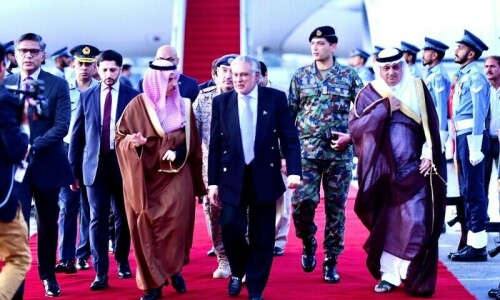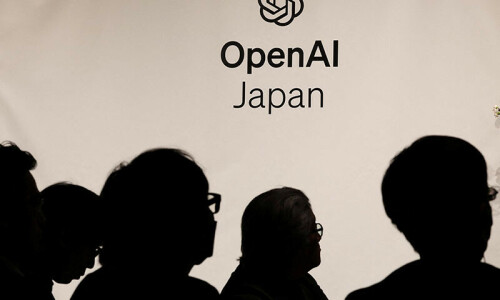IN a way, the Hay Book Festival is a victim of its own success. Now in its 25th year, it keeps getting bigger and more commercial as writers, publishers and book lovers flock to this small, picturesque Welsh town on the border with Herefordshire.
Each time I have gone to the festival over the last decade or so, I say ‘never again’. Not because I have not enjoyed the stimulating talks, but because of the crowds. Now, you can choose out of eight events at any given time over the festival’s ten days; the programme lists over 500 events, apart from concerts, workshops and children’s activities.
To accommodate all these events, a veritable tented city is created in the fields about half a mile from Hay-on-Wye. And this is a huge pity: when I first went to the festival, it was located in the town itself, so in between lectures, you could walk into Hay’s many second-hand bookshops and come across treasures. Now you have to take a shuttle from the festival, or drive.
This year, another reason to skip the festival was the unending rain. When we were there for two days, the car parks and the approach to the festival were covered with slush as people struggled with their umbrellas in the high wind. After we had left, friends tell me the car parks became flooded, so you had to park four miles away and then queue for the shuttle.
I had to be there as I had been invited to speak about freedom of expression in South Asia, together with Bangladeshi novelist Tahmima Anam and Indian poet Arundhati Subramanian. Chaired by John Kampfner, the panel explored the nature and extent of censorship in the Subcontinent. I brought in the Pakistan government’s repeated attempts to block or limit access to the Internet. In particular, I mentioned blogger Sana Saleem’s heroic struggle to fight these restrictions.
One event I particularly enjoyed was Nobel laureate Mario Vargas Llosa’s conversation with Peter Florence, the festival organiser and mastermind. The Peruvian writer talked about his early influences, and the gradual acceptance of South American writers in the world of literature over the last few decades. When speaking about his latest novel, Llosa dwelt at some length on the life and times of its central character, Roger Casement. This Irishman was in Congo in the 19th century, and there he recorded and denounced the unspeakable Belgian atrocities committed in its African colony.
He later went to Peru where he documented the genocide carried out by rubber barons against small, isolated Amazonian tribes. His work helped in bringing these early multinationals to account in London. Casement finally joined the nationalist cause in Ireland, and was arrested and hanged for collaborating with the Germans during the First World War.
Peter Florence also engaged Salman Rushdie in a wide-ranging conversation before a packed audience. The Indian-born novelist spoke about issues of identity, his long period of living under the shadow of Khomeni’s fatwa, and his earlier novels. He quoted V.S. Naipaul on the fatwa as “a bad review from the Ayatollah”.
Mohammed Hanif, the Pakistani author of A Case of Exploding Mangoes and Our Lady of Alice Bhatti, joined Suzanne Joinson, author of A Lady Cyclist’s Guide to Kashgar, in a discussion on their respective novels. Hanif was self-deprecating and witty in equal measure. I met him briefly after his talk, but sadly, he was rushing off to catch a train to London.
From Hay, we went to Dorset where the small, lovely island of Purbeck holds an annual arts week. This is a provincial affair where a number of art galleries host works by local artists. For the last couple of years, the lady wife and her two siblings have been organising the Dick Odgers Memorial Lecture series in honour of their father. My late father-in-law spent much of his life in this part of England, and as an avid sailor, kept a sailing boat here.
This year, the speaker was Lord Melvyn Bragg, a close friend of Dick’s. Bragg is a prolific writer and radio and TV presenter, and has written over 20 novels, and ten works of non-fiction. He also hosts In Our Time, a weekly BBC Radio 4 programme about ideas.
In Purbeck, he spoke about the impact of the King James Bible on England and the rest of the world. When this translation first appeared in 1611, it was in the teeth of much opposition from both the Church and the establishment. The hero of this revolution was John Wycliffe, a radical scholar who, through a deep religious belief, thought it was essential to take the holy texts to the common man in his language. Accordingly, he set about translating the bible from the Latin into simple English that even a shepherd could understand if it was read to him.
Through the ages, the clergy of every major faith has tried to preserve religious works in obscure languages so that they remain inaccessible to the common man. Thus, they retain their monopoly on interpretation, whether the texts are in Hebrew, Latin, Sanskrit or Arabic. But Wycliffe’s singlehanded efforts under Henry VIII laid the foundation for what we know today as the King James Bible. Wycliffe himself had to flee England, and was finally betrayed and executed in Holland.
In his book on the subject (The Book of Books: the radical impact of the King James Bible 1611-2011), Bragg tells us how the translation gave a fragmented, emerging language a structure and organisation. English words at the time had multiple spellings, and the new bible brought some order to this chaos. In passing, Bragg lists a few of the everyday expressions from the Hebrew that have come to us from the King James Bible:
‘To lick the dust’, ‘to fall flat on his face’, ‘a man after his own heart’, ‘to pour out one’s heart’, ‘from time to time’, ‘pride goes before a fall’, ‘to rise and shine’, ‘a fly in the ointment’. There are many, many more, and not just from Hebrew.
Oh yes, the Bible was also instrumental in bringing about the ban on slavery.










































Dear visitor, the comments section is undergoing an overhaul and will return soon.